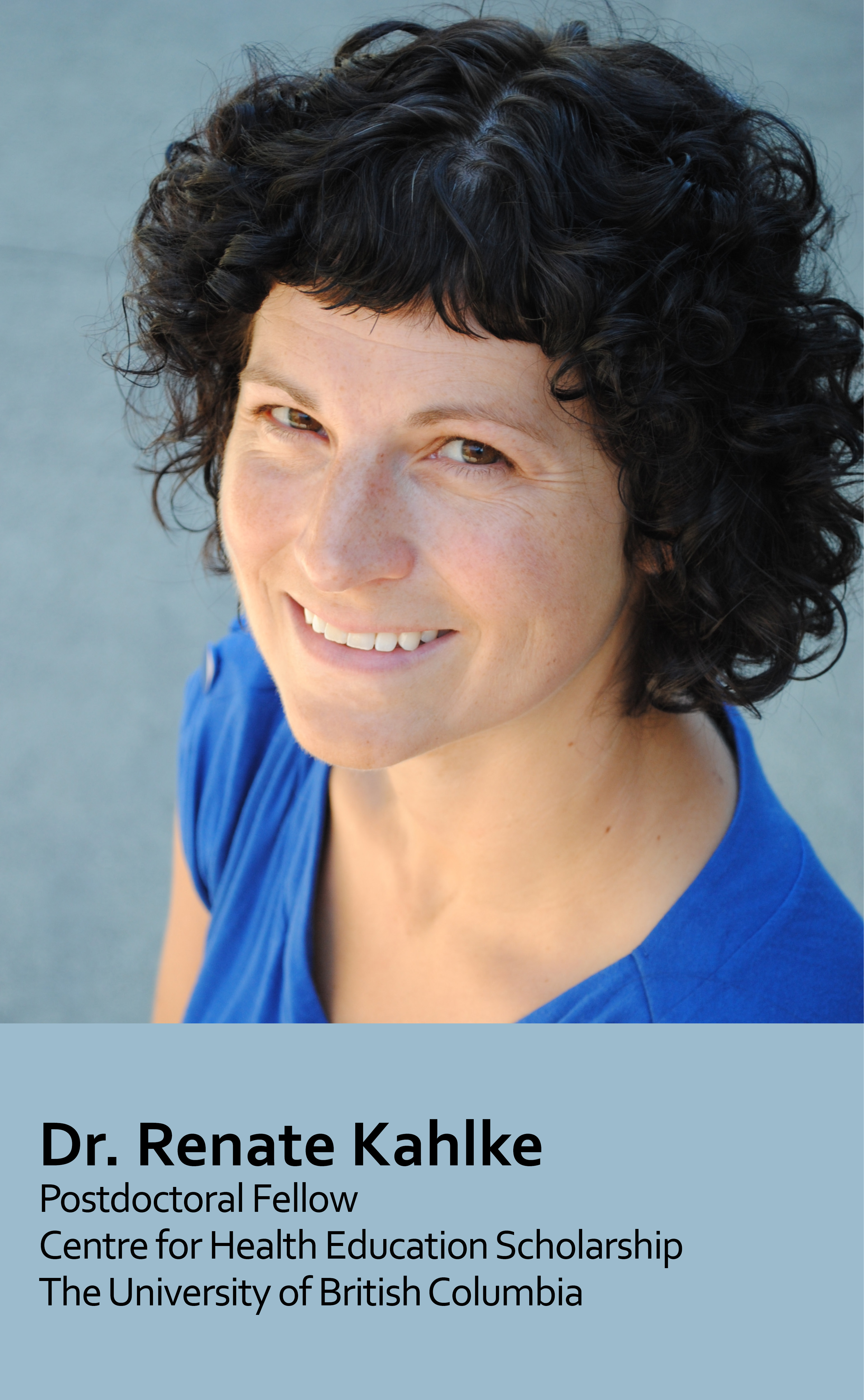The Social and Cultural Dimensions of Putting Knowledge into Practice
Dr. Renate Kahlke

Date: Wednesday, June 21, 2017
Time: 12:00pm to 1:30pm (feel free to bring a bagged lunch)
Locations:
- DHCC 2267 (host venue)
- LSC CMR 1312
- PHRM 3321
- MSB 107
- RJH CA 120
- KGH CAC 237
- NHSC 9-374
- Surrey Central City (Manning Room 4109)
Remote:
- Movi E, ID 30215
- Additional locations and video conference options are available. Please email ches.secretary@ubc.ca to process the request.
Abstract
Health professions education relies on the expectation that learners and practitioners will apply what they have learned in practice settings. However, healthcare environments are complex and there is evidence that professionals do not always act on even the most firmly held knowledge, or on what they believe to be the right course of action. At other moments, professionals do act on their knowledge and beliefs despite significant social or systemic barriers to doing so. This talk will focus on the social and cultural factors impacting learners’ and practitioners’ willingness and ability to translate knowledge into practice in several contexts. First, I provide several examples drawn from my dissertation research. I also discuss two areas of research I am currently involved in, examining the impact of culture and context on knowledge implementation in the areas of health advocacy learning, and learning in continuing professional development.
Biography
Renate Kahlke is a postdoctoral fellow at the Centre for Health Education Scholarship at UBC. She completed her PhD in Educational Policy Studies at the University of Alberta in 2015, and a Masters in English and Cultural Studies at McMaster University in 2006. Her interests lie in exploring the social and cultural factors that impact learning, and the implementation of learning in practice. Renate also has a background practicing as a curriculum designer in interprofessional education and other areas of health professions education.
Research interests: I have explored my interest in the social and cultural aspects of learning in the following areas:
-
• Health advocacy
• Continuing professional development
• Workplace learning and assessment
• Critical and clinical thinking
• Community service learning
• Interprofessional education
I also have an interest in exploring qualitative research methods, such as constructivist grounded theory, generic interpretive approaches, case studies, and visual elicitation methods. I am also very interested in partnering with colleagues who have experience using quantitative methods to develop rich mixed and multiple method designs.
Accreditation:
The University of British Columbia Division of Continuing Professional Development (UBC CPD) is fully accredited by the Committee on Accreditation of Continuing Medical Education (CACME) to provide study credits for continuing medical education for physicians. This course has been reviewed and approved by the UBC Division of Continuing Professional Development. This Group Learning course meets the certification criteria of the College of Family Physicians of Canada and has been certified by UBC CPD for up to 1.5 Mainpro+ credits. This course is an Accredited Group Learning Activity eligible for up to 1.5 MOC Section 1 credits as defined by the Maintenance of Certification program of the Royal College of Physicians and Surgeons of Canada. Each physician should claim only those credits he/she actually spent in the activity.
